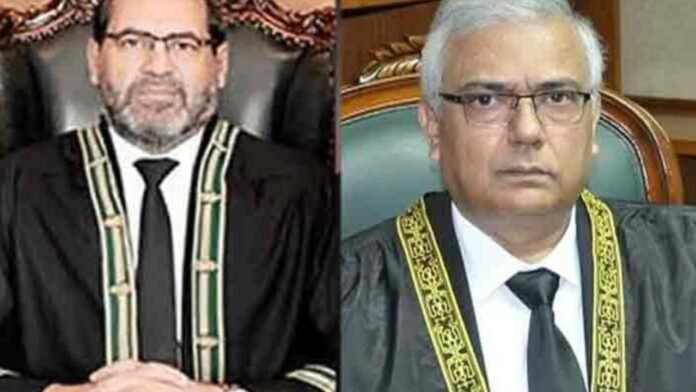Justice Aminuddin Khan and Justice Naeem Akhtar Afghan have issued a detailed dissenting note. The Supreme Court’s decision on reserved seats for the Pakistan Tehreek-e-Insaf (PTI) party. Dissenting Judges Oppose PTI Reserved Seats – Full Analysis Their dissenting note challenges the majority verdict and presents an alternative view.
Details of the dissenting Judges Oppose
In their dissenting note, Justice Aminuddin Khan and Justice Naeem Akhtar Afghan argue that granting reserved seats to PTI is unconstitutional. They emphasize that such a move would contravene the established principles of the Constitution, according to the dissenting judges. The Sunni Ittehad Council did not participate in the elections as a party nor was it involved in the PTI case. This raises concerns about the legitimacy of awarding reserved seats to PTI, given that . The Council had no formal role in the electoral process for the contested reserved seats.
Delay in Detailed Judgment Dissenting Judges Oppose
The dissenting note highlights the significant delay in issuing the detailed judgment, which has been pending for over 15 days. The judges expressed concern that this delay could potentially undermine the effectiveness of the review process. The absence of a detailed decision means that the legal basis for the majority verdict remains unclear, which impacts any subsequent legal review.
Inclusion of Correspondence Dissenting Judges Oppose
The dissenting note includes four letters from the Council to the Election Commission. These letters support the argument that the Council’s non-participation in the elections should preclude reserved seats.
Recognition of Independent Candidates Dissenting Judges Oppose
Another critical point raised in the dissenting note is the reco Election Commission’s ignition of independent candidates by e-judges. After completing procedural requirements for the National Assembly and the provincial assemblies, the election authorities acknowledged the independent candidates. This process highlights a key aspect of the election procedure and further questions the validity of allocating reserved seats to PTI
Jurisdictional Issues Dissenting Judges Oppose
The dissenting note argues that granting relief to PTI would require exceeding the jurisdiction assigned under Articles 175 and 185 of the Constitution. These articles define the scope of judicial authority and intervention, and the dissenting judges contend that providing relief to PTI would necessitate a departure from these constitutional limits.
Suspension of Constitutional Articles
To provide relief to PTI, the dissenting note suggests suspending several constitutional articles, including Articles 51, 63, and 106. These articles deal with electoral and constitutional provisions theatrical to the functioning of the slave bodies. Suspending these articles would fundamentally alter the legal framework governing reserved seat allocation. Raising questions about the constitutional integrity of such a decision.
Judicial Proceedings and Objections
This omission highlights a procedural gap in the headcase’s handling, which was neither a party in the Election Commission nor the High Court. Further complicating the matter.


